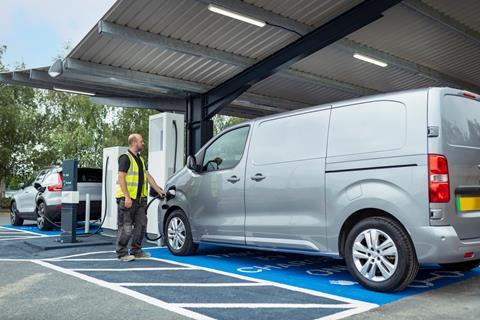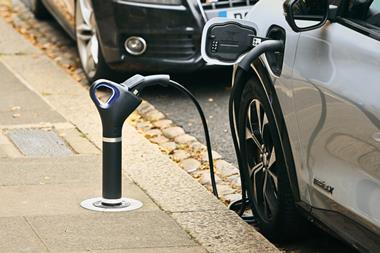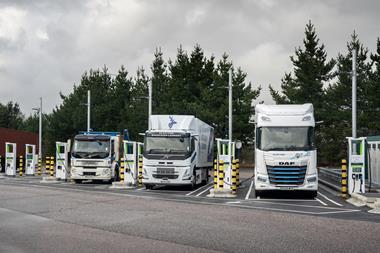
UK demand for new light commercial vehicles (LCVs) rose by 5.4% in April as more businesses invested in the latest models, but take-up of battery electric vans slumped by 42.2%, prompting callls for “urgent action” to deliver ’van-suitable’ public chargepoints across the UK.
The latest figures from the Society of Motor Manufacturers and Traders (SMMT) revealed that 23,889 new vans, 4x4s and pickups were registered, the highest total for the month since 2021, as fleets invested in vehicles to support local trades, doorstep services and other increasingly vital parts of the logistics sector.
Growth across the market was underpinned by the long-term popularity of the largest LCV models weighing more than 2.5 tonnes to 3.5 tonnes, up 3.3% to 15,714 units – accounting for almost two thirds (65.8%) of registrations. Deliveries of medium-sized vans grew by 6.8% to 4,611 units, while the biggest percentage increase was for the smallest vans, up 41.1% – albeit still representing just 2.5% of the market. Pick-up volumes also rose, by 16.2% to 2,487 units, while deliveries of new 4x4s fell by -17.6% to 473 units, compared with a particularly strong April last year.
However, the SMMT reported that deliveries of the very latest zero-emission LCVs declined last month, with new battery electric van (BEV) uptake falling to 861 units, down -42.4% compared with last year’s uptick in demand. It means BEVs accounted for just 3.6% of all new LCV registrations compared with 6.6% in April last year. The month traditionally has low registration volumes following new plate March and is therefore subject to volatility, however, such a decline in BEV uptake – just as government targets demand rapid growth – puts green goals at risk, stressed the SMMT, which said that decarbonising the sector depends on a nationally planned, locally delivered chargepoint strategy that meets the specific needs of vans – particularly the largest models for which existing infrastructure is not normally suitable.
Identifying the best places to locate such chargepoints, while speeding up grid connections in every part of the country, is also essential to give operators confidence to invest; and given the current need to create the right conditions for more fleets to switch, the Plug-in Van Grant must also remain in place, else the UK risks slowing down road decarbonisation.
Mike Hawes, SMMT chief executive, said: “Britain’s new van market continues to grow with the very latest, more fuel efficient models driving down CO2 – a core mission for the sector. Manufacturers are investing billions to bring electric vehicles to market, however, uptake is slowing and urgent action is needed. If government is serious about delivery of its ambitious targets, it must deploy an equally bold strategy for delivering van-suitable public chargepoints across the UK, now the single most important step to get a greener Britain moving.”































